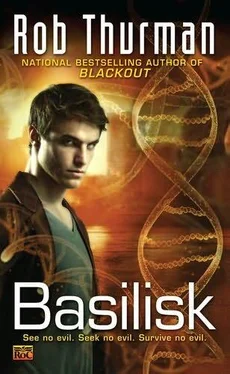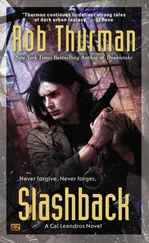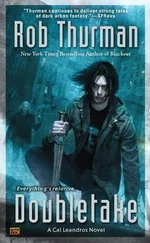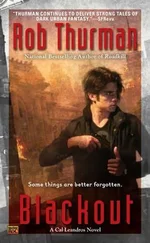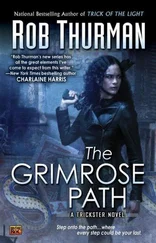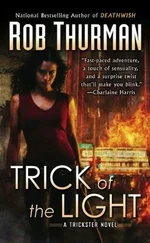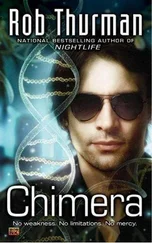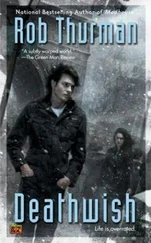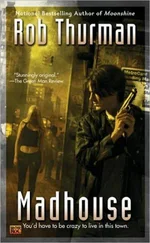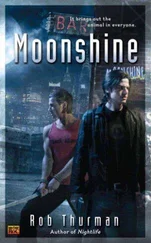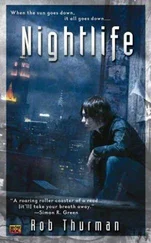Rob Thurman - Basilisk
Здесь есть возможность читать онлайн «Rob Thurman - Basilisk» весь текст электронной книги совершенно бесплатно (целиком полную версию без сокращений). В некоторых случаях можно слушать аудио, скачать через торрент в формате fb2 и присутствует краткое содержание. Год выпуска: 2011, ISBN: 2011, Издательство: ROC, Жанр: Фантастика и фэнтези, на английском языке. Описание произведения, (предисловие) а так же отзывы посетителей доступны на портале библиотеки ЛибКат.
- Название:Basilisk
- Автор:
- Издательство:ROC
- Жанр:
- Год:2011
- ISBN:978-1-101-51716-1
- Рейтинг книги:3 / 5. Голосов: 1
-
Избранное:Добавить в избранное
- Отзывы:
-
Ваша оценка:
- 60
- 1
- 2
- 3
- 4
- 5
Basilisk: краткое содержание, описание и аннотация
Предлагаем к чтению аннотацию, описание, краткое содержание или предисловие (зависит от того, что написал сам автор книги «Basilisk»). Если вы не нашли необходимую информацию о книге — напишите в комментариях, мы постараемся отыскать её.
Basilisk — читать онлайн бесплатно полную книгу (весь текст) целиком
Ниже представлен текст книги, разбитый по страницам. Система сохранения места последней прочитанной страницы, позволяет с удобством читать онлайн бесплатно книгу «Basilisk», без необходимости каждый раз заново искать на чём Вы остановились. Поставьте закладку, и сможете в любой момент перейти на страницу, на которой закончили чтение.
Интервал:
Закладка:
“No weakness. No limitations. No mercy,” I said.
She nodded, her hair swinging at her jaw with the motion. “Jericho would be so disappointed.” She smiled, the dimple flashing beside her wide mouth. “The bastard, which makes liking you more fun. I was his first; did you know? That probably confused you, that you didn’t recognize me from the Institute. I’m not twenty-two; I’m twenty-nine and his very first success. He had a run of bad luck after me, batch after bad batch, before he finally had production going smoothly. Assembly-line assassins. I graduated when I was seventeen and you were this tall.” She held down a hand to indicate. “I killed my owner when I was seventeen and a half and walked away. I liked being free.
“Speaking of like, did you like me back? Though you knew I was lying to you? And especially now you know that I’m an older woman.” She smiled again. Happy. Always happy. Happy to watch movies and chat online; happy to kill. She didn’t see the difference between the two. Not yet . . . even with her doubts now regarding Wendy. Not yet and maybe not ever.
“At first. Then I sort of loved you. I still do.” Unlike her, I didn’t sound happy. I wasn’t. Loving Ariel wasn’t a love to savor or cherish. Loving her meant I might not love again. She was a sociopath and as she’d said, she liked me, but that didn’t mean she would or could learn to like anyone else. A friend? A neighbor? Fun was fun, and toys, like her engineered superflu, were hard to give up. Like Wendy, Ariel wouldn’t tolerate tedium. Loving her didn’t mean I didn’t know what she was. It was why I kept e-mailing her, kept in touch, kept her thinking I was on her hook, because all chimeras had to be cured—even Ariel.
“How many people have you killed since you dropped your owner and ran? How many people did you kill when you weren’t ordered to or forced to? How many people, Ariel, did you kill because you liked doing so? How many people, not counting the ones you’d kill with what you made in your lab, will you kill in the future if I don’t cure you?” I asked.
“Please. So serious. People are like potato chips. You can’t kill just one,” she said, radiant with humor. When I didn’t comment, the dimple and smile disappeared. “Why does it matter? That’s what we do. That’s who we are. We are evolution in progress, Michael. Everyone else”—she gave a shrug as pretty as her first one and utterly dismissive—“their time is over. Our time is now. Why shouldn’t I have fun with them?”
“How many people, Ariel?” I repeated.
She stared at me. She didn’t understand. She couldn’t understand; she was psychologically incapable of it—at least now. And now was all we had. The water was louder now. Nature knew evolution better than we did. It knew a wrong turn and we were that. “You do have a cure, don’t you?” she asked slowly, for the first time seeing something in me that was similar to what she’d been wary of in Wendy, something to be feared.
“I do,” I said quietly.
“And you’d use it? On your own kind?”
“As Wendy had killed our own kind, I will. There’s no other way.”
“I didn’t know that about Wendy. That she would kill her own, kill one of us. I hope you believe that.” She shook her head then, denying it. “Whatever it is, you know it’s not a cure, Misha. It’s a poison, to strip us of what we are.” She took a step back from me.
“No, it is a cure, but not for you or the others. It’s a cure for the human race. We’re not right. We’re twisted. We were made that way. We’re a malignant cancer and, as with any cancer, the cure is a poison. You won’t be able to kill anymore.” I hesitated, because it was dark and ugly, but it was necessary. She’d lied to me; I’d lied to her. I’d lied to everyone for all my good intentions and promises to the contrary, but that was over.
“And you won’t be you anymore. You’ll still be intelligent, that won’t change, but Ariel will die. Someone will take her place. Someone who doesn’t care what color her hair is or that she likes mermaids and short skirts or purple sandals. She’ll be a new person—not an interesting person; brilliant but not clever; alive but she won’t care particularly if she is or not. She won’t have hopes and dreams, and fun will be only a word to her. But she won’t kill again and that’s the best I can do. We’re not the next step in evolution. We’re a mutation created by a madman and brainwashed to be monsters. Monsters belong in those movies we watched, Ariel, not in the real world.”
That was when Ariel chose to take herself out of the world. She spun on one heel, spread her arms wide, and sailed over the low concrete wall. For a moment she seemed to hover in the air, a butterfly in color and light, too much a part of the air and sky itself to fall. But fall she did, with a graceful dive that would take her into the same thrashing crush of water that had swallowed Wendy.
It was beautiful, that incredible soaring flight and inevitable plunge, and I hadn’t taken a step to stop her. Sometimes the cure is worse than the disease, and more rarely the cure is worse than death itself. Ariel couldn’t be anything less than she was and she made her choice. But she took the virus canister with her. Metal, it would sink to the bottom of the river and the airborne virus would never see the light of day. Ariel’s last gesture wasn’t a gift to the world or to Cascade Falls; it was a gift to me.
She wanted to surprise me. I let her.
With that surprise, that gift, she redeemed herself—in my eyes at least, and my eyes were the only ones that counted.
“She took yoga and ballet,” I said, more to myself than Stefan or Saul. “If anyone could fly, she would be the one.” I didn’t go to look over the side. It made it easier to believe.
Fly away, bird. Fly away always.
Then there was work to be done.
Energy already recharging, I knelt beside the nearest chimera. He had fallen facedown when the tranquilizer dart had hit him. I rolled him over. Dark blond hair, light-skinned; it was Michael Three. It seemed somehow right a Michael would be my first. I laid my hand on his forehead. What I was doing was almost as complex as putting Stefan’s heart back together. The physical connection helped.
“What are you doing?” Stefan squatted beside me. “You just said there was no cure.”
“Not a genetic one, no.” The cartridges we’d shot the chimeras with hadn’t held a mixture of “cure” and tranquilizer—another lie. They’d been nothing but pure tranq, because there was nothing else to mix with it. “I’m basically destroying a good deal of their amygdala and a particular portion of their frontal cortex and hypothalamus.” I felt the cells die in Michael’s brain, leaving a lesion of darkness I could’ve seen if I’d closed my eyes. I moved to the next one—a Lily. She had brown hair and dark skin—Lily Four, then. “I’m giving them highly improved lobotomies or a variation of an amygdalotomy combined with other procedures. They should retain almost all of their emotions, except aggression.”
“Almost”—it was a word that encompassed more than a person could imagine.
“You said chimeras naturally blocked other chimeras from damaging them? And if that’s what you’re doing, won’t they heal?” He didn’t like this. I didn’t blame him. I didn’t like it either.
“All that practicing I told you about, all the healing I did on the animals and myself for almost three years every day, it increased what I can do tenfold. We weren’t taught to try to be more than what we were. I don’t think it crossed any of the researchers’ minds that we could actually increase a genetic trait by exercising it, but I did. I worked Jericho’s gene until I could make it do fucking backflips.” Lily went quicker than Michael and the third even faster. “If you can build something up, you can tear it down more easily and efficiently—even if it is a chimera.” It was a simple logic and I thought the only reason Jericho hadn’t thought of it was that healing others and building, not manipulating, wasn’t part of his mental wiring.
Читать дальшеИнтервал:
Закладка:
Похожие книги на «Basilisk»
Представляем Вашему вниманию похожие книги на «Basilisk» списком для выбора. Мы отобрали схожую по названию и смыслу литературу в надежде предоставить читателям больше вариантов отыскать новые, интересные, ещё непрочитанные произведения.
Обсуждение, отзывы о книге «Basilisk» и просто собственные мнения читателей. Оставьте ваши комментарии, напишите, что Вы думаете о произведении, его смысле или главных героях. Укажите что конкретно понравилось, а что нет, и почему Вы так считаете.
